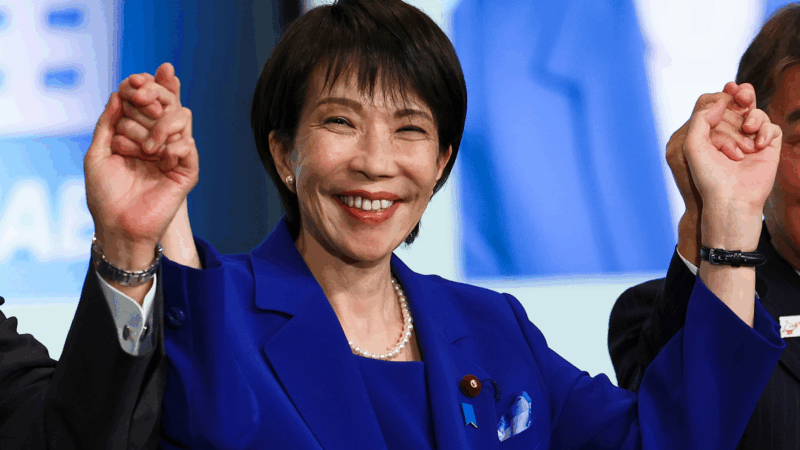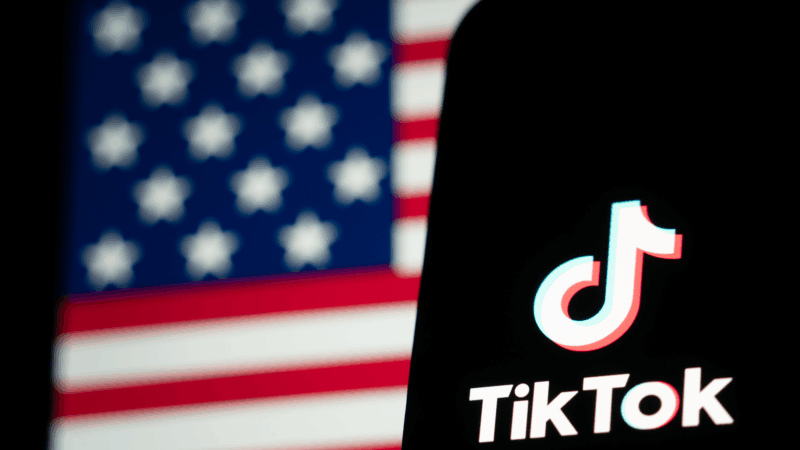Japan’s ruling party elects Sanae Takaichi as leader, likely to become first female PM
TOKYO — Japan’s governing party on Saturday elected former Economic Security Minister Sanae Takaichi, a hard-line ultra-conservative and China hawk, as its new leader, making her likely to become the country’s first female prime minister.
In a country that ranks poorly internationally for gender equality, the 64-year-old Takaichi makes history as the first female leader of Japan’s long-governing conservative Liberal Democratic Party. She is one of the most conservative members of the male-dominated party.
An admirer of former British Prime Minister Margaret Thatcher, Takaichi is a protege of former Japanese Prime Minister Shinzo Abe ‘s ultra-conservative vision and a regular at the Yasukuni Shrine, seen as a symbol of Japan’s wartime militarism, which could complicate Tokyo’s relations with its Asian neighbors.
Takaichi beat Agriculture Minister Shinjiro Koizumi, the son of popular former Prime Minister Junichiro Koizumi, in a runoff in a vote by the LDP on Saturday.
Takaichi replaces Prime Minister Shigeru Ishiba as the party hopes to regain public support and stay in power after major election losses.
She is likely to be Japan’s next prime minister because the party remains by far the largest in the lower house, which determines the national leader, and because opposition groups are highly splintered.
Takaichi thanks supporters as results announced
As the runoff results were announced, Takaichi stood up and bowed to fellow party members.
“I made history for the LDP,” said Takaichi, thanking those who supported and voted for her. “Right now, instead of savoring joy, I’m overwhelmed by what’s ahead, a mountain of challenges that I have to tackle with help from all of you.”
“We must make our party one that is more energetic and cheerful so that we can change the people’s worries into hope,” Takaichi added, calling for cooperation from LDP lawmakers. “Otherwise, we can’t rebuild our party.”
The LDP, whose consecutive losses in parliamentary elections in the past year have left it in the minority in both houses, needs its new leader to quickly bring back voter confidence and stability and to address challenges in and outside Japan. Takaichi will also need cooperation from key opposition groups to implement her party’s policies.
Ishiba, who achieved a 15% tariff deal with Washington and put Japan’s ties with South Korea and other Asian countries on track during his one-year stint, said “I hope the LDP will band together under new (party) president Takaichi to serve for the country and the people, as well as the world and for the new era.”
Ishiba, a centrist known as archrival of Abe, was virtually forced into resigning by ultra-conservative wings in the party.
There were five candidates for the job
Five candidates — two currently serving and three former ministers — vied for the LDP presidency.
Saturday’s vote only involved 295 LDP parliamentarians and about 1 million dues-paying members. It only reflected 1% of the Japanese public.
A parliamentary vote is expected in mid-October. The LDP, which has been criticized by opposition leaders for creating a prolonged political vacuum, needs to hurry because the winner will soon face a diplomatic test: a possible summit with U.S. President Donald Trump, who could demand that Japan increase its defense spending.
A meeting is reportedly being planned for late October. Trump will travel to the Asia-Pacific Economic Cooperation summit in South Korea starting Oct. 31.
The LDP’s choice of Takaichi, instead of the more centrist-to-liberal Koizumi, apparently underscores the party’s hope to win back conservative voters who supported emerging far-right groups such as Sanseito in the July parliamentary election.
But the LDP also needs help from the opposition, which it has long neglected. The party will likely look to expand its current coalition with the moderate centrist Komeito with at least one of the key opposition parties, which are more centrist.
Takaichi shied away from her conservative and anti-China views during campaigning
Takaichi like other candidates called herself a “moderate conservative” during the run-up to the election to show their willingness to work with the opposition and stayed away from stressing her opposition to liberal social issues or anti-China policies.
She supports bigger fiscal spending for growth, a stronger military and cybersecurity, as well as tougher regulations on increasing foreign tourists and laborers. She was criticized for citing unconfirmed reports to slam foreigners for kicking deer in Nara, her hometown, and saying many foreign law offenders escaped indictments due to a shortage of translators.
Experts say candidates avoided discussing their usual political views on historical issues, same-sex marriage and other contentious topics, including the party’s political funds scandal, which was the biggest reason for their election losses, and anti-corruption measures. Their avoidance of these subjects raised doubts over the party’s ability to regain public trust, analysts said.
Between Megan Moroney and Ella Langley, country women rule the charts
It's a big week for women in country music — and, it turns out, for women whose songs are favored by women in figure skating.
A Jan. 6 rioter pardoned by Trump was sentenced to life in prison for child sex abuse
Since receiving presidential pardons, dozens of former Capitol rioters have gotten into more legal trouble. In Florida, Andrew Paul Johnson was sentenced to life in prison for child sex abuse.
President Trump, Pam Bondi sued over sale of TikTok assets
The case, filed in a federal court in Washington, D.C., accuses the Trump administration of ignoring legislation designed to stop the spread of Chinese propaganda — and instead helping to broker a partial sale to businessmen close to Trump.
A rift between Spain and Trump widens over Spanish opposition to the Iran war
The Spanish government reiterated it would not let U.S. forces use two joint military bases in Spain as the U.S.-Israeli war in Iran escalates, widening a rift with the Trump administration.
Blackpink, modern K-pop’s trailblazing group, tries to find its way home
A new mini-album finds the world's biggest girl group in a tight spot: competing with its own legacy.
If you loved ‘Sinners,’ here’s what to watch next
So you loved best picture nominee Sinners. What should you watch next? We asked our audience to share their recommendations. They suggested Near Dark, The Wailing and other vampire horror films.






